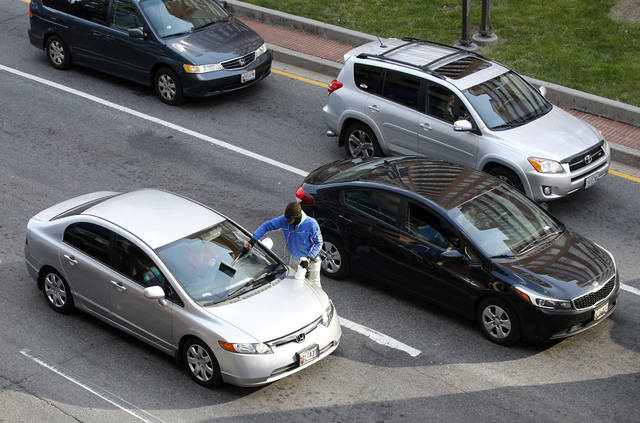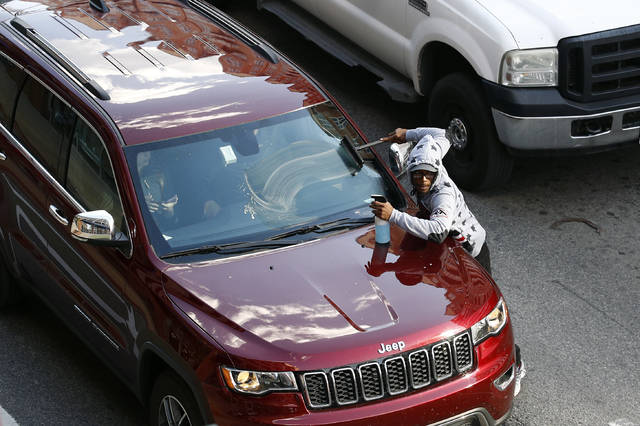BALTIMORE — Young “squeegee kids” who wash car windshields while darting in and out of Baltimore traffic could eventually go from street hustling to conventional employment under a privately-funded program pitched by the city’s mayor.
Aiming to solve the decades-old issue, rekindled amid more motorist complaints, Mayor Catherine Pugh forecasts that roughly $2 million per year over the next two years could be raised to enroll as many as 100 window-washing youngsters in job training and provide them with stipends.
In a Baltimore Sun op-ed Tuesday pitching her donor-dependent plan, the Democrat writes she’s “confident we can put forth a sustainable program for the squeegee kids of our city.” Pugh cited a recent $50,000 contribution to pave the way.
It’s not the first time her administration has focused on the city’s youthful windshield washers. Last year, her administration launched “pop-up” car washes to help squeegee kids’ supplement their income. Others were routed to a program dubbed BMORE Beautiful, aimed at tidying up vacant lots and other areas.
In divided Baltimore, controversy is perennial over the young people who dash into traffic at stoplights armed with rags and buckets of water.
Some say the adolescents — predominantly boys from neighborhoods marked by profound inequality and scant opportunities — are only trying to make an honest buck. Others say their approach more accurately resembles extortion.
Every now and again, encounters between motorists and street entrepreneurs can take an aggressive turn. Earlier this month, one driver posted photos and video on social media after his car’s back window was shattered when he refused a wash from a squeegee kid. There have been other complaints about intimidating or obnoxious behavior.
Sitting in a friend’s idling car Tuesday, Baltimore house painter Kevin Jennings said he suspects the complaints are largely from suburban commuters, not from city residents accustomed to dealing with window cleaners and others seeking a little cash at traffic lights and stop signs.
“As long as the squeegee kids keep calm and respectful if somebody says they don’t want a wash, there’s no issue,” Jennings said in downtown Baltimore.
City Hall is not alone in trying to ease rush hour interactions between drivers and young window washers. Recently, a city organization called Downtown Partnership announced it would soon spend about $3,000 weekly to place unarmed security guards at high-traffic intersections.
Baltimore’s windshield-washing youth have triggered debate over decades. In the 1980s, the City Council voted to ban youths from washing windshields at intersections and promised to try to find them alternative work. But the practice has only persisted.
“The squeegee kids have been now a reality for over 30 years,” Pugh wrote in her Tuesday op-ed. “Whether they continue to be a reality in the days ahead will depend on our ability to offer compelling and sustainable alternatives.”
———
Follow McFadden on Twitter: https://twitter.com/dmcfadd



